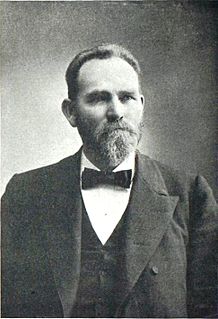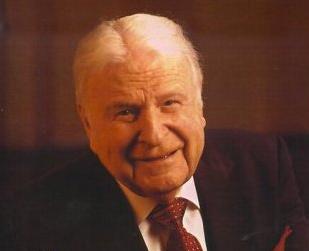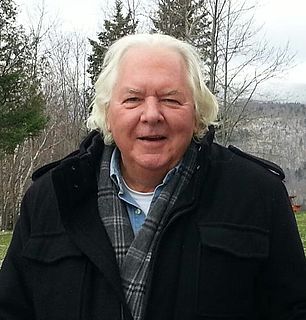A Quote by William Shakespeare
Be merry; you have cause, so have we all, of joy; for our escape is much beyond our loss . . . . then wisely weigh our sorrow with our comfort.
Related Quotes
We mourn; we sorrow for our loved ones that go - our wives, our husbands, our children, our parents; we sorrow for them; and it is well and proper that we should moum for them and shed tears for the loss, for it is our loss; but it is their gain, for it is in the march of progress, advancement and development. It will be all right when our time comes, when we have finished our work and accomplished what the Lord required of us.
[All the ancient wisdom] tells us that work is necessary to us, as much a part of our condition as mortality; that good work is our salvation and our joy; that shoddy or dishonest or self-serving work is our curse and our doom. We have tried to escape the sweat and sorrow promised in Genesis - only to find that, in order to do so, we must forswear love and excellence, health and joy. (pg. 44, "The Unsettling of America")
Sorrow is so woven through us, so much a part of our souls, or at least any understanding of our souls that we are able to attain, that every experience is dyed with its color. This is why, even in moments of joy, part of that joy is the seams of ore that are our sorrow. They burn darkly and beautifully in the midst of joy, and they make joy the complete experience that it is. But they still burn.
So much of our early gladness vanishes utterly from our memory: we can never recall the joy with which we laid our heads on our mother's bosom or rode on our father's back in childhood; doubtless that joy is wrought up into our nature, as the sunlight of long-past mornings is wrought up in the soft mellowness of the apricot; but it is gone forever from our imagination, and we can only believe in the joy of childhood.
I testify to you that our promised blessings are beyond measure. Though the storm clouds may gather, though the rains may pour down upon us, our knowledge of the gospel and our love of our Heavenly Father and Savior will comfort and sustain us and bring joy to our hearts as we walk uprightly and keep the commandments. There will be nothing in this world that can defeat us.
God uses suffering to purge sin from our lives, strengthen our commitment to Him, force us to depend on grace, bind us together with other believers, produce discernment, foster sensitivity, discipline our minds, spend our time wisely, stretch our hope, cause us to know Christ better, make us long for truth, lead us to repentance of sin, teach us to give thanks in time of sorrow, increase faith, and strengthen character.
A home is much more than a house built of lumber, brick, or stone. A home is made of love, sacrifice, and respect. We are responsible for the homes we build. We must build wisely, for eternity is not a short voyage. There will be calm and wind, sunlight and shadows, joy and sorrow. But if we really try, our home can be a bit of heaven here on earth. The thoughts we think, the deeds we do, the lives we live not only influence the success of our earthly journey, they also mark the way to our eternal goals.
Our ego ideal is precious to us because it repairs a loss of our earlier childhood, the loss of our image of self as perfect and whole, the loss of a major portion of our infantile, limitless, ain't-I-wonderful narcissism which we had to give up in the face of compelling reality. Modified and reshaped into ethical goals and moral standards and a vision of what at our finest we might be, our dream of perfection lives on--our lost narcissism lives on--in our ego ideal.





































